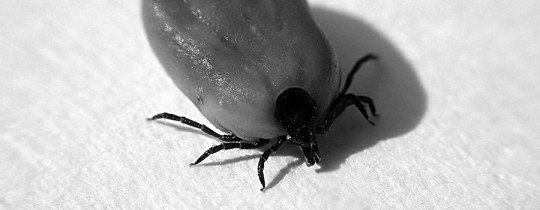Tick-Borne Encephalitis

Description
Tick-borne encephalitis (TBE), is an infectious disease caused by a virus. The virus is capable of attacking a number of species, including humans, birds, rodents, horses, and carnivores. It is known as a zoonotic disease, meaning it can be transferred from animals to humans and vice versa.
Tick-borne encephalitis affects the functioning of the nervous system, namely the brain. It usually causes one of three conditions: encephalitis, meningitis, or meningoencephalitis. In some cases, those affected by TBE will have symptoms or complications pertaining to the central nervous system that last a lifetime. Between ten and 20% of patients report experiencing these neurological complications.
Symptoms
There are two stages of symptoms in someone who has contracted TBE. Stage one symptoms usually appear between one and two weeks after a bite from a tick. Amongst those who are bitten, nearly 67% will develop stage one symptoms. Others will not show any symptoms. These include: headache, fatigue, muscle pain, fever, and feeling ill or under the weather. This stage of symptoms usually lasts up to eight days in total. Following this episode, no symptoms appear for anywhere between one and 20 days after.
One-third of the people who show symptoms characteristic of stage one usually develop second phase symptoms. These are serious illnesses that affect the nervous system. A noticeable increase in body temperature is often the first sign of encephalitis, meningitis, or meningoencephalitis. All three of the conditions may lead to paralysis.
Causes
Tick-borne encephalitis is caused by a virus, which goes by the name of tick-borne encephalitis virus (TBEV). It was first identified and isolated in the year of 1937. There are three main types of TBEV, based on the location that the virus originated in. These include: European, Siberian, and Far-East TBEV. Accordingly, there is no risk of catching TBE if you are not in an area of risk.
The virus is transmitted via ticks, which are small and black in color. They acquire the disease by biting infected animals or humans. Once a tick has the virus, it is infected for the duration of its life. When it bites humans and other animals, they become carriers of the disease as well. If you are in a high-risk area, especially in a forest, it is important to check yourself regularly for ticks and bites. You might not notice when you have been bitten.
Prevention
Prevention efforts for tick-borne encephalitis focus on minimizing the risk of getting bitten by ticks. These include checking yourself regularly for ticks if you are camping or in a forest environment. You can also deter ticks using common bug sprays and covering up bare skin.
Tick-borne encephalitis vaccines are not available in the United States. However, in areas where TBE is considered endemic, they are available to protect against this disease. The vaccines are targeted towards the different strains of the virus, so getting one depends on where you are going, whether it’s Russia, Europe or the Far East. You can find more information about the different vaccines through the World Health Organization.
Treatment
If you suspect you have been bitten by a tick and infected, you needn’t seek treatment for first stage symptoms. You should feel better within little over a week. Over-the-counter pain medication, such as ibuprofen, can help to control fever or relieve symptoms that might feel like a bout of the flu.
If you develop stage two symptoms, you will be treated for the condition that you develop. Meningitis and encephalitis are usually treated according to their severity. In many cases, hospitalization is required. Drugs are usually given to control inflammation in the brain and the spinal cord and intravenous fluids can be used to ensure you can take in nutrients. In some cases, a respiratory aide is required. In one out of every eight cases of stage two symptoms, patients require admittance to an intensive care unit (ICU) to ensure that complications of the disease are controlled and long-term damage is prevented.
